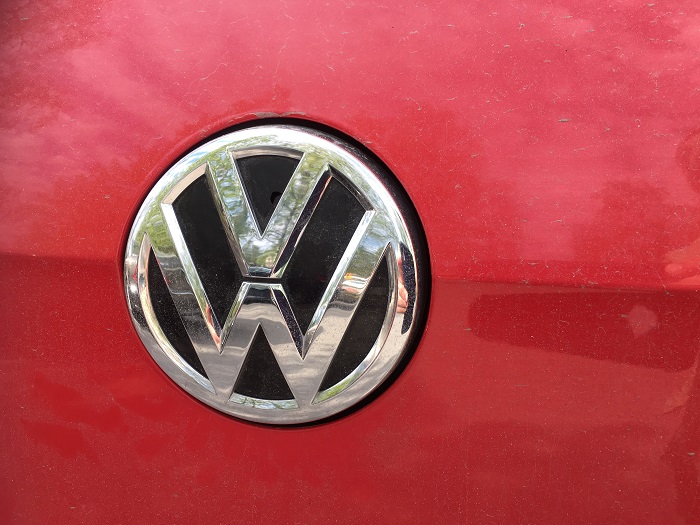Volkswagen suspends chief lobbyist
Published : 31 Jan 2018, 01:12
Volkswagen has reacted to a growing scandal in the German automotive industry surrounding controversial animal and human experiments by suspending its chief lobbyist Thomas Steg on Tuesday.
The Wolfsburg-based carmaker was hereby drawing "first consequences" following the recent media revelations, a company statement read.
CEO Matthias Mueller addressed the public directly as well, reiterating his commitment to a comprehensive investigation into activities of the "European Research Group on Environment and Health in the Transport Sector" (EUGT), established and financed by Volkswagen and other leading automotive firms including BMW and Daimler in Germany back in 2007.
"We are in the process of scrutinizing the work of the EUGT which was dissolved in 2017," Mueller said. He added that he "respected" Steg's voluntary decision to assume responsibility for the scandal.
After working as a spokesperson for the federal government (2002-2009) and independent communications consultant, Steg took on the role of chief lobbyist at Volkswagen in 2012. His corporate relations functions will be passed on to Jens Hanefeld, head of international policy, in the interim.
Following recent revelations that monkeys were forced to inhale fumes from a Volkswagen diesel engine with manipulated emissions software, the newspaper Stuttgarter Zeitung reported on Monday that humans were also exposed to nitrogen oxide in experiments commissioned by EUGT.
However, Prof. Thomas Kraus, who led the controversial 2013 study at the University of Aachen, emphasized that it was not related to diesel engines.
"There is no connection to the diesel scandal," the academic insisted while acknowledging the receipt of a partial grant from the EUGT.
Kraus told press that the experiment in question was instead aimed at examining the effects of emission levels at work spaces and only exposed 25 healthy human participants to levels of nitrogen oxide pollution commonly found in cities. The ethical commission of the University of Aachen reviewed and approved the study which was subsequently published in 2016.
Nevertheless, Volkswagen, BMW and Daimler were all keen to distance themselves from the two studies in a bid to avert reputational damage.
Shortly before news of his suspension became public, Steg told the newspaper Bild that Volkswagen would examine what had subsequently happened to the monkeys used in the widely-publicized animal experiment conducted at the Lovelace Respiratory Research Institute in New Mexico, United States. He further vowed that his firm would refrain from any experiments involving animals in the future.
Questioned about its involvement in and prior knowledge of the affair, a spokesperson for BMW said that the Munich-based firm had launched an "immediate internal investigation" which was still ongoing.
Despite a raft of groveling apologies by automotive executives, German policymakers continued to express their anger on Tuesday at the revelations of automotive industry financing for what has been described as "unethical" experiments.
Speaking to the newspaper Passauer Neue Presse, Minister of Justice Heiko Maas (SPD) described the revelations as "simply shocking." It was "appalling" that animals and humans were abused to further the commercial interests of the firms behind EUGT, he said.
Similarly, Minister for the Environment Barbara Hendricks (SPD) said the two cited experiments were "irresponsible." Hendricks further added that in light of earlier "dieselgate" and "cartel" scandals, that "no one could purposefully inflict as much damage on the automotive industry as it has done itself."
The Green party (Gruene) parliamentary faction demanded an urgent response from the federal government in Berlin as to when it first learned about the experiments and whether any public funds were awarded to EUGT. The European Commission demanded a swift investigation into claims of unethical experiments as well.
Meanwhile, the German Association of the Automotive Industry (VDA) announced a new initiative by its members to improve air quality in cities. VDA President Matthias Wissmann argued that this engagement showed that "automotive producer and supplier firms took their responsibility seriously."
Whether municipal governments in Germany will go ahead with plans to impose outright driving bans on diesel vehicles to lower excessive nitrogen oxide pollution levels still remains unclear. The German Ministry for the Environment briefed EU Commission officials on Tuesday that 20 cities in the country would fail to comply with EU emissions limits before 2020.
The European Commission has repeatedly criticized Berlin for not doing enough to improve urban air quality, threatening to commence legal proceedings at the European Court of Justice unless legislative progress was made in this regard.


